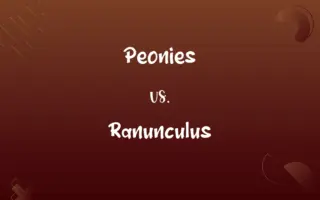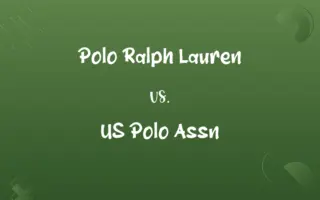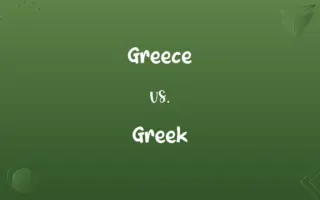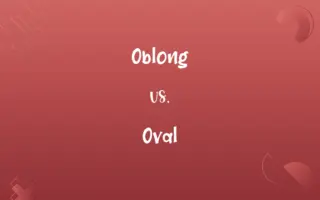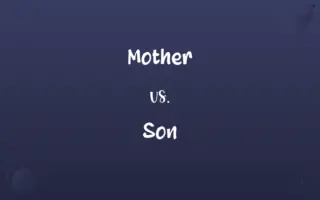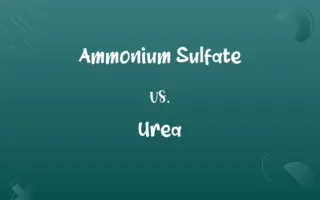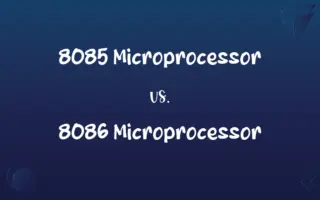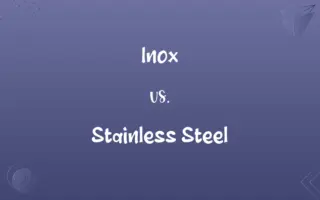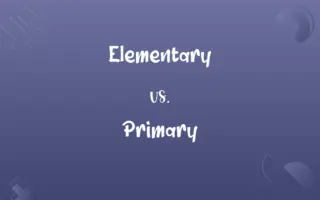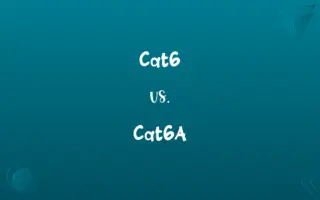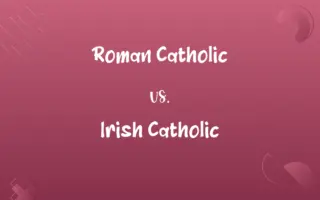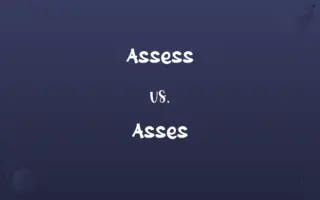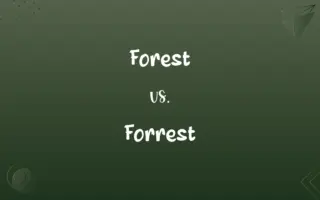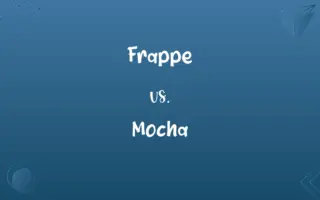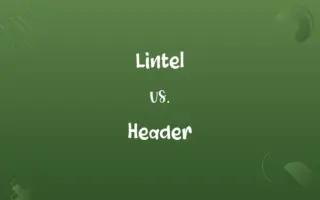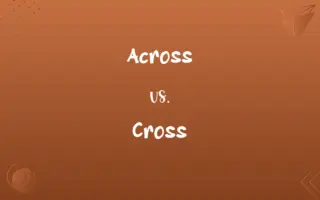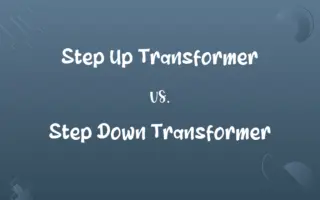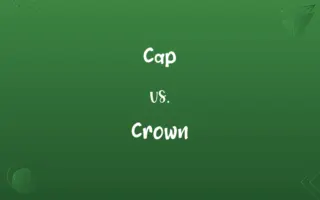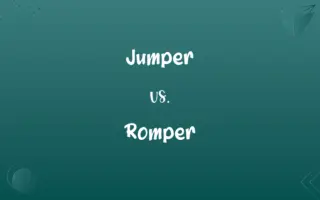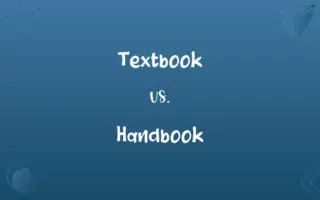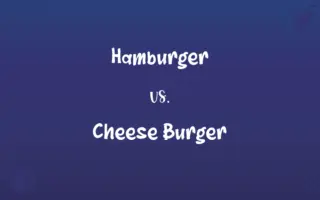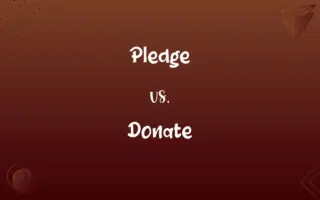Hey vs. Hi: Know the Difference

By Shumaila Saeed & Dua Fatima || Published on July 20, 2024
"Hey" is informal and casual, often used with friends, while "Hi" is slightly more formal and widely acceptable in both casual and professional contexts.
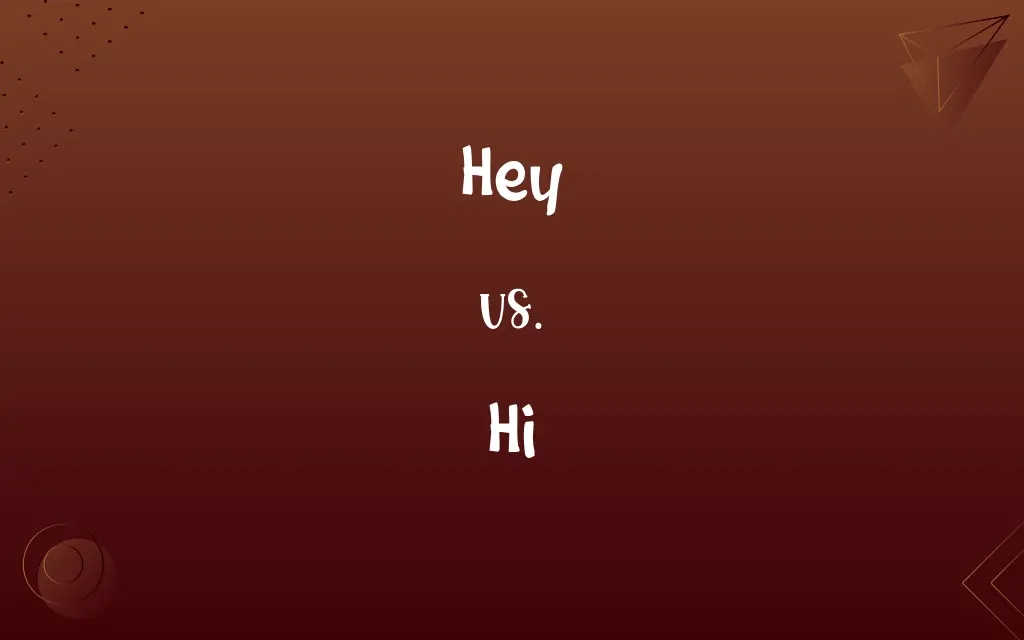
Key Differences
"Hey" and "Hi" are common greetings in English, each setting a different tone for the conversation. "Hey" is considered more informal and can convey a sense of warmth and familiarity, making it a popular choice among friends or in relaxed social settings. It might be less appropriate in formal or professional situations where a more neutral tone is desired.
Dua Fatima
Jul 20, 2024
"Hi," on the other hand, strikes a balance between formality and informality. It is universally recognized and can be used in a wide range of situations, from greeting a colleague at work to starting a conversation with an acquaintance. Its versatility makes it a safe option when the level of formality desired is unclear.
Shumaila Saeed
Jul 20, 2024
"Hey" and "Hi" are used can significantly influence their appropriateness. For example, "Hey" might be used to grab someone's attention in a casual manner, while "Hi" could be preferred in a professional email or meeting.
Dua Fatima
Jul 20, 2024
Both greetings can be modified with additional words to fit various situations, such as "Hey there," "Hi everyone," or "Hey [Name]," adding a personalized touch to the greeting.
Dua Fatima
Jul 20, 2024
The choice between "Hey" and "Hi" often comes down to the relationship between the people involved and the setting of their interaction. Personal preference and regional variations also play a role in determining which greeting is used.
Shumaila Saeed
Jul 20, 2024
ADVERTISEMENT
Comparison Chart
Formality
Informal, casual
Neutral, acceptable in both casual and formal contexts
Dua Fatima
Jul 20, 2024
Common Usage
Among friends, in relaxed social settings
In both personal and professional settings
Shumaila Saeed
Jul 20, 2024
Contextual Appropriateness
Less appropriate in formal situations
Widely appropriate across various contexts
Shumaila Saeed
Jul 20, 2024
Modifications
Often personalized, e.g., "Hey there"
Can be formal or informal, e.g., "Hi everyone"
Dua Fatima
Jul 20, 2024
ADVERTISEMENT
Hey and Hi Definitions
Hi
Polite and welcoming, used in both personal and professional contexts.
Hi, I'm here for the meeting.
Hifza Nasir
Feb 27, 2024
Hey
Used to attract someone's attention informally.
Hey, can you pass me the remote?
Hifza Nasir
Feb 27, 2024
ADVERTISEMENT
Hey
Can indicate a relaxed or informal setting.
Hey everyone, welcome to the party.
Shumaila Saeed
Feb 27, 2024
Hi
Can precede introductions or start conversations.
Hi, I believe we haven't met before.
Dua Fatima
Feb 27, 2024
Hi
Often used to greet acquaintances or colleagues.
Hi, how was your weekend?
Shumaila Saeed
Feb 27, 2024
Hey
Used to attract attention or to express surprise, appreciation, wonder, or pleasure
"Oh, hey, you saw that ninety-nine-yard punt return in the Super Bowl? Wow, so did I!" (Don Pfarrer).
Shumaila Saeed
Jan 25, 2024
Hi
A friendly, informal, casual greeting said upon someone's arrival.
Hi, how are you?
I just dropped by to say “hi”.
Shumaila Saeed
Jan 25, 2024
Hey
A request for repetition or explanation; an expression of confusion.
Hey? How's that?
Shumaila Saeed
Jan 25, 2024
Hi
Informal spelling of high, often in hyphenated terms.
Get hi-quality videos here!
Shumaila Saeed
Jan 25, 2024
Repeatedly Asked Queries
Is there a difference in how "Hey" and "Hi" are perceived across cultures?
Yes, perceptions can vary by culture, with "Hey" possibly seen as too casual or informal in some professional or cultural settings.
Shumaila Saeed
Jul 20, 2024
Can the use of "Hey" in a greeting affect the tone of a conversation?
Yes, "Hey" can set a more relaxed and informal tone for the conversation that follows.
Dua Fatima
Jul 20, 2024
Which is better for a job interview, "Hey" or "Hi"?
"Hi" is generally better for job interviews and other formal settings due to its neutral tone.
Hifza Nasir
Jul 20, 2024
Is "Hey" rude to use in a professional email?
While not necessarily rude, "Hey" is less formal and may not be appropriate for all professional contexts. "Hi" or "Hello" is safer.
Dua Fatima
Jul 20, 2024
How do I decide whether to use "Hey" or "Hi" in a message?
Consider your relationship with the recipient and the context of your message. "Hi" is generally a safe choice if you're unsure.
Shumaila Saeed
Jul 20, 2024
Is it acceptable to start a formal letter with "Hi"?
While "Hi" is more informal than "Dear," it may be acceptable in business correspondence with someone you know well. Otherwise, "Dear" is more traditional and formal.
Shumaila Saeed
Jul 20, 2024
Can I use "Hi" when greeting a group of people?
Yes, "Hi" can be used for individuals or groups, e.g., "Hi everyone."
Shumaila Saeed
Jul 20, 2024
Does the choice between "Hey" and "Hi" affect the formality of text messages?
Yes, using "Hey" can make text messages seem more casual, while "Hi" is neutral and can be used in a wider range of situations.
Hifza Nasir
Jul 20, 2024
Can "Hey" be used in academic settings?
It depends on the relationship with the recipient and the context. "Hi" or "Hello" may be more appropriate for communicating with professors or in formal academic correspondence.
Shumaila Saeed
Jul 20, 2024
Are there situations where neither "Hey" nor "Hi" is appropriate?
In very formal or traditional contexts, such as formal letters or ceremonies, more formal salutations like "Dear" or specific titles may be preferred.
Shumaila Saeed
Jul 20, 2024
Share this page
Link for your blog / website
HTML
Link to share via messenger
About Author
Written by
Shumaila SaeedShumaila Saeed, an expert content creator with 6 years of experience, specializes in distilling complex topics into easily digestible comparisons, shining a light on the nuances that both inform and educate readers with clarity and accuracy.
Co-written by
Dua Fatima
